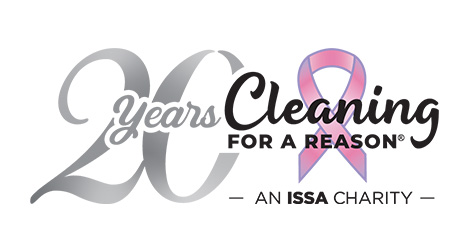Cleaning a facility, even under perfect conditions, can be challenging.
When facilities host a variety of events, those challenges rise exponentially.
The evolution in cleaning equipment has provided facility managers with a number of options in hardware.
However, people — not machines — are the key to getting the job done successfully.
Focusing on management principles, the following includes a number of suggestions on how to best utilize the people involved in event cleaning.
Set Clear Standards
One of the most difficult aspects of cleaning is its subjectivity.
What constitutes “clean” for one person may not be clean for another.
Therefore, before developing an action plan, you must have clear, objective standards of what is acceptable and what is not.
For example, do you consider it a success if the restrooms are cleaned every 15 minutes during an event, or do you need to have porters for the restroom to ensure they are immaculate at all times?
Don’t make the mistake of setting standards in a vacuum.
Prior to setting your standards, consult your clients, guests and stakeholders to obtain their input.
In addition, the standards you set need to be attainable and measureable.
Are they possible to achieve within the budget and time constraints you have? Finally, your standards should vary for different events.
The expectations for an elegant sit-down dinner are far different than they are for a rock concert, and your standards should reflect those differences.
Turning Standards Into An Action Plan
Now that you have set your standards, you need to have an action plan to get there.
It may be helpful to break each event into the following three cleaning categories: Pre-event, event and post-event.
Each of these categories should have a specific timeline with the amount and type of labor built into it.
Some of the issues you will need to address in your action plan include:
1. Pre-event cleaning
How should the venue look when guests arrive?
How do you keep the building clean during move in?
2. Event cleaning
Are you flexible enough to deal with the unexpected during a live event?
Do you have enough paper products for the entire event?
3. Post-event cleaning
How long do you have to get the facility in shape for the next event?
Do you need any special equipment to return the facility to normal?
Management
Housekeeping, like any other business component, needs good management to have any chance of success.
The larger the event, the deeper the management staff should be.
Even for smaller events with just a handful of housekeeping staff, we recommend having an onsite supervisor to make sure everything runs smoothly.
Nothing can ruin an event quicker than a failed cleaning plan.
A good management staff can prevent this from happening.
Take the time to find the right people, even if it costs you more than you anticipated.
In the long run, hiring the proper management team will provide you with a great return on your investment.
Aside from managing your employees, communication is important.
Have you given your people the proper tools to communicate with each other during an event?
In a big building with a large crowd, it can be difficult to locate people when you need them, creating unnecessary frustration.
Make sure your people have the tools — cell phones and/or two-way radios — to communicate with one another at all times.
For large events, it may be helpful to have a dispatcher, a critical clearinghouse for receiving and transmitting cleaning calls to the proper employees.
Making Trash Removal Easier
Oftentimes, facility managers fail to provide a sufficient number of trashcans and recycling bins for an event.
It might be helpful to think of it as a basic math problem: If you have X amount of trash and recycling that will be generated during an event, it has to go somewhere.
By increasing the number of receptacles available during an event, you reduce the number of times the cleaning crew must empty them and also limit the potential for overflowing trashcans to create an unsightly mess.
When in doubt, always stage a few more receptacles than you think you will need. The same principle applies to the back of the house.
Do you have enough open tops; did you empty your compactor prior to the event; is your trash hauler aware of your event; are they available to make special trips to accommodate your needs; do you have storage space for your recyclables until they can be picked up?
There are few things more frustrating, not to mention the potential for negative public relations, than not having the ability to properly dispose of the trash generated during an event.
A Flexible Mindset
No matter how well you plan and execute, one of the certainties in the event business is that anything can happen.
To successfully host events, the housekeeping team must have a flexible mindset and a can-do attitude.
Did the event attract more attendees than anticipated or is it running longer than originally scheduled?
If so, don’t stress; it’s all part of dealing with events.
Have contingencies in place and make the best adjustments you can on the fly.
If you don’t panic, neither will your staff.
Few things are more difficult than estimating the right amount of labor for a first time event.
When you are not sure what to expect, it may be best to overstaff.
If you discover during an event that you are overstaffed, you may be able to send people home early to save on your budget.
On the other hand, once the event begins, if you find you are understaffed, you may have limited options.
Keeping good records is essential to making informed staffing decisions, especially if you host an event multiple times.
For large events, your regular housekeeping personnel may not be sufficient to handle the crowd.
It behooves you to develop a good relationship with the temporary labor agencies in your area.
Temporary help can get you over the hump for large events, and most reputable temporary agencies will work with you to find the type of laborers you need.
When dealing with temporary laborers, you should always consider the “no show” factor.
For example, once you determine the number of workers you need for the post-event cleaning, you should request more than that number from the temporary agency.
Experience suggests that not all temporary help will show up for work.
How Did You Do?
It is essential to take the time after each event to evaluate how you did.
What worked; what didn’t; what would you do differently next time?
There are myriad tools to assist you with this process, including before and after photos, event checklists, written and oral reports from your staffs and attendee surveys and comments.
At times, the evaluation process can be painful, but it is an important tool to help make your next event more successful.
By using the tips provided above, you can more successfully manage the cleaning of your next event.


